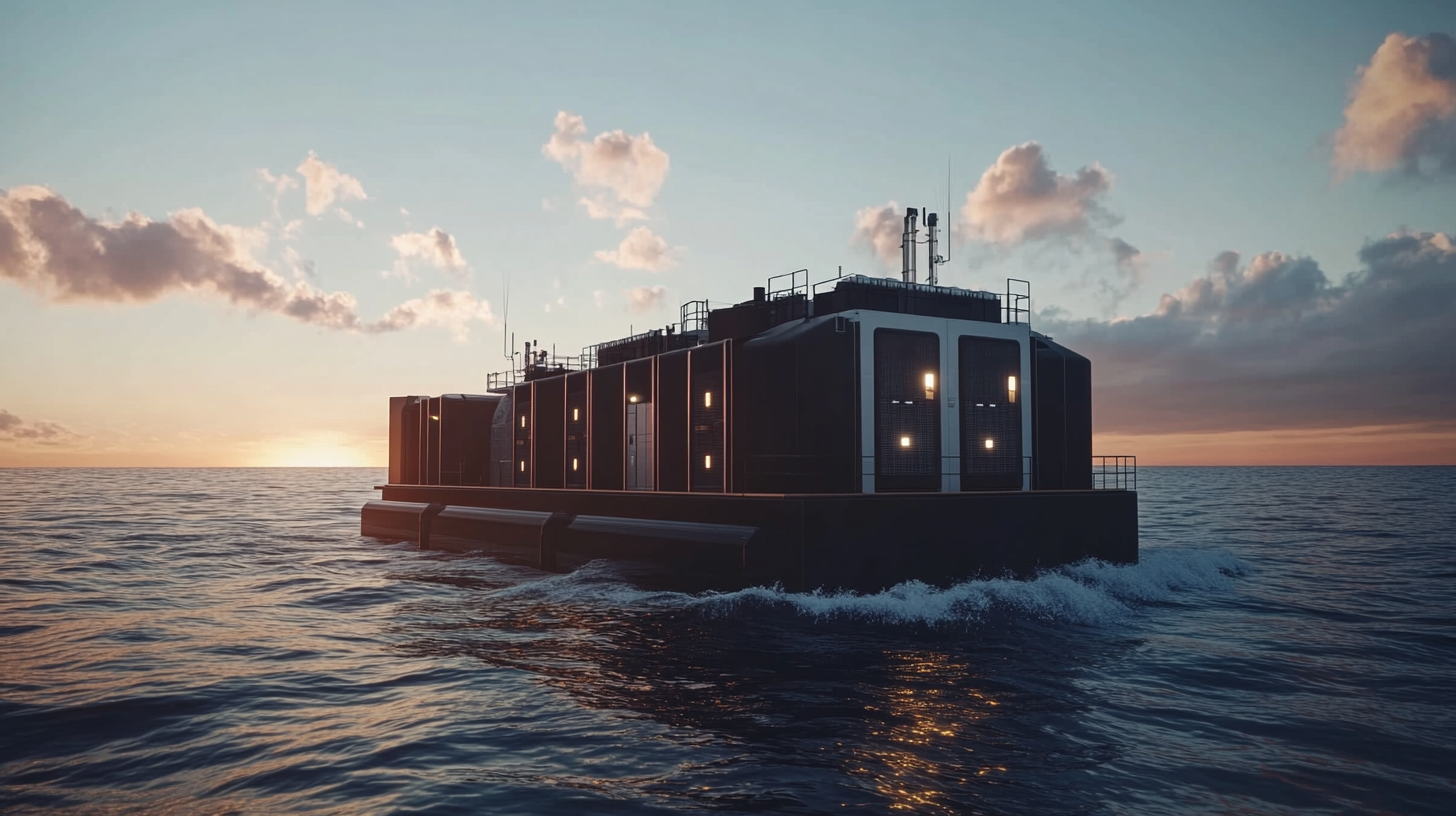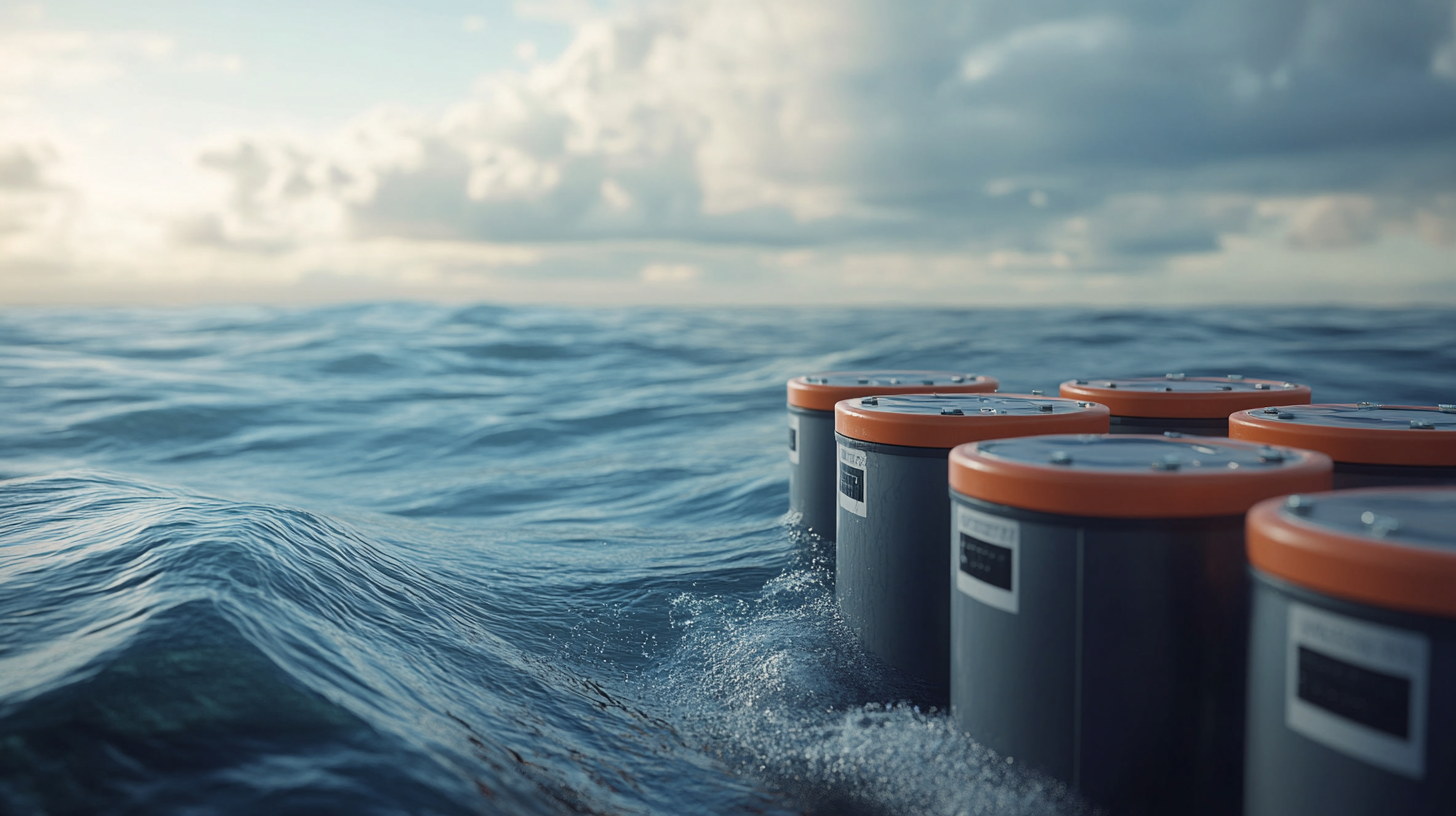Innovative Uses of Boat Batteries in Marine Operations and Beyond
In recent years, the marine industry has witnessed a remarkable evolution in the technology and application of boat batteries. According to a report by the National Marine Manufacturers Association, the boat battery market is projected to grow significantly, with an expected compound annual growth rate (CAGR) of 6.5% through 2027. This growth is fueled by advancements in battery technology, such as the rise of lithium-ion batteries, which offer improved efficiency, longevity, and environmental benefits compared to traditional lead-acid batteries. As marine operations increasingly demand reliable power solutions, innovative uses of boat batteries are emerging to enhance performance and sustainability.
Beyond the marine sector, boat batteries are finding a plethora of applications in various industries, underscoring their versatility. From powering essential onboard systems to serving as backup sources for emergency situations, boat batteries play a crucial role in ensuring safety and operational efficiency. Furthermore, with the global push for greener technologies, industries are exploring how boat batteries can be integrated into hybrid systems, supporting renewable energy initiatives. As we delve into the innovative uses of boat batteries in marine operations and beyond, it becomes evident that they are not only essential components in boating but also pivotal elements in driving sustainable practices across multiple sectors.

Exploring the Evolution of Boat Battery Technology for Enhanced Marine Applications
The evolution of boat battery technology has transformed marine operations, enabling greater efficiency, reliability, and sustainability. Traditionally, lead-acid batteries dominated the market, offering a basic level of performance but lacking in longevity and energy density. However, the shift towards lithium-ion batteries has marked a significant advancement. According to a report by Transparency Market Research, the marine battery market is expected to reach approximately $6 billion by 2026, growing at a compound annual growth rate (CAGR) of 8.5% from 2019 to 2026. This growth reflects the increasing adoption of advanced battery technologies among recreational and commercial marine operators alike. Lithium-ion batteries, in particular, are gaining traction due to their lightweight design and superior energy capacity, which can lead to longer ranges and reduced fuel consumption. They also offer faster charging times and a significantly longer lifecycle compared to their lead-acid counterparts. A study by Navigant Research indicates that lithium batteries can last up to seven times longer than traditional options, making them a cost-effective solution for marine applications. This paradigm shift not only enhances the performance of vessels but also aligns with the industry's push towards greener technologies, as lithium batteries typically have a lower environmental impact when it comes to manufacturing and disposal. As boat battery technology continues to advance, the potential applications extend beyond traditional marine use. We are seeing innovations such as energy storage systems that can integrate with renewable sources like solar and wind, enabling boats to operate more sustainably. The International Council on Clean Transportation has projected that with the integration of advanced battery systems, emissions from marine operations could decrease by up to 40% by 2030. This evolution of boat battery technology represents not just an improvement in marine capabilities, but also a commitment to a more sustainable future for the maritime industry.

Sustainable Energy: Harnessing Marine Batteries for Renewable Power Solutions
In recent years, the shift towards sustainable energy solutions has become paramount, especially in marine operations. According to the International Energy Agency, marine transportation accounts for nearly 3% of global CO2 emissions. This statistic underscores the urgency to innovate and find cleaner alternatives. One such innovation is the repurposing of boat batteries, traditionally seen as mere energy storage units, into powerful renewable energy solutions.
Boat batteries, often lead-acid or lithium-ion, have immense potential in harnessing renewable energy sources like wind and solar. A report from the American Boat and Yacht Council estimates that the marine battery market will grow by 10% annually, reflecting a growing demand for energy-efficient solutions. By integrating solar panels with marine battery systems, vessels can become self-sufficient, dramatically reducing reliance on fossil fuels. This configuration not only minimizes emissions but also extends the life cycle of the batteries, as they are continually charged by renewable sources.
Moreover, the potential for boat batteries extends beyond marine applications. As the world moves towards electric vehicles and grid storage solutions, marine batteries can be adapted for use in hybrid power systems. A study from Bloomberg New Energy Finance suggests that the global hybrid-electric ship market is projected to reach $118 billion by 2030, driven by the need for cleaner energy in maritime logistics. This cross-industry potential highlights the adaptability of marine battery technology, demonstrating its role in combating climate change while advancing energy sustainability both on and off the water.

Innovative Battery Systems: Revolutionizing Fishing and Recreational Activities
Innovative Battery Systems: Revolutionizing Fishing and Recreational Activities
The advent of advanced battery technologies has made significant strides in enhancing marine operations, particularly in fishing and recreational activities. Long gone are the days when fishermen relied solely on traditional fuel-based engines, which were not only cumbersome but also environmentally detrimental. Today, modern boat batteries, such as lithium-ion systems, offer a game-changing solution that significantly improves efficiency and reduces the carbon footprint of marine activities. These batteries are lightweight, have a longer lifespan, and provide consistent power output, enabling fishermen to remain on the water for extended periods without the worry of running out of charge.
Moreover, innovative battery systems enable a variety of recreational activities beyond fishing. For instance, electric propulsion systems powered by these advanced batteries open new horizons for sailing enthusiasts and water sport lovers, promoting a quieter and more sustainable experience on the water. Paddleboarders and kayakers can now enjoy enhanced performance with electric assist options, allowing them to explore further and tackle challenging waters while preserving the serene environment of lakes and rivers.
Additionally, the integration of smart technology into battery systems is revolutionizing how users interact with their marine vessels. With features like smartphone connectivity, real-time performance monitoring, and battery management systems, boaters can maximize their operations and streamline their activities. These innovations not only enhance the efficiency of marine operations but also ensure safety and peace of mind, allowing users to focus on enjoying their time on the water.

Boat Batteries Beyond the Water: Unique Applications in Off-Grid Living
The exploration of innovative applications for boat batteries extends beyond the marine environment, offering compelling solutions for off-grid living. As the global emphasis on reducing carbon emissions intensifies, the advantages of utilizing boat batteries in various sectors have become increasingly evident. With the shipping industry responsible for over 1.12 billion tons of carbon emissions annually, accounting for approximately 4.5% of the world’s total CO2 emissions, there's a pressing demand for sustainable alternatives.
Boat batteries, particularly lithium-ion and lead-acid types, can serve as reliable energy storage systems for off-grid setups. These batteries facilitate the use of renewable energy sources, such as solar or wind, ensuring a steady power supply in remote locations. The adaptability of boat batteries allows them to effectively support essential amenities in off-grid lifestyles, including lighting, refrigeration, and even charging electric vehicles. This versatility not only promotes energy independence but also aligns with global goals for sustainability.
Additionally, emerging technologies in the marine sector, such as fuel cell systems and hybrid-electric solutions, showcase the potential for integrating advanced battery technologies into broader applications. The shift towards greener marine operations is reflected in initiatives aimed at developing zero-emission vessels and enhancing energy efficiency. The use of boat batteries in these applications signifies a growing trend towards sustainability that transcends traditional maritime boundaries and could reshape how communities approach off-grid living.
Future Trends: The Role of Advanced Battery Technologies in Marine Operations
The landscape of marine operations is undergoing a remarkable transformation, largely driven by advances in battery technology. The recent 2024 Battery Development Trends Forum highlighted the necessity for enhanced energy solutions in various sectors, including marine transportation. With the rapid development of electric vehicles (EVs), there's a growing emphasis on battery performance factors such as range, recharging efficiency, safety, and recyclability, which are also directly applicable to marine batteries.
Research indicates that the marine battery market is projected to reach USD 5.7 billion by 2027, driven by the increasing adoption of electric propulsion systems and the need for sustainable practices in the maritime industry. Innovative uses of advanced battery technologies, such as lithium-ion and solid-state batteries, are enabling vessels to operate more efficiently while reducing their carbon footprint. As shipbuilders and operators prioritize eco-friendly solutions, these battery technologies are paving the way for greener marine operations.
Moreover, the integration of smart battery management systems is being seen as a critical trend for future marine applications. These systems not only enhance battery life and performance but also offer real-time data analytics for optimizing operations. As marine settings become more digitized, the role of sophisticated battery technologies will be indispensable in achieving sustainability goals while meeting the growing demands of the industry.
